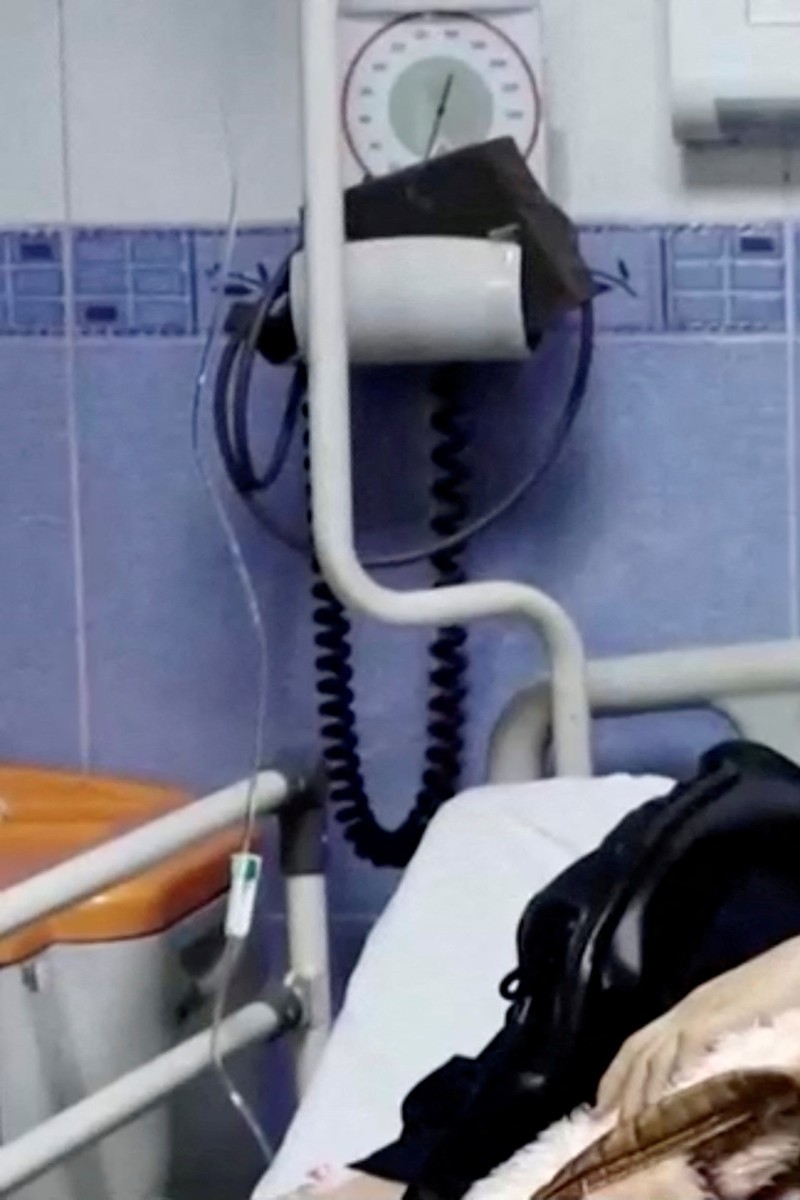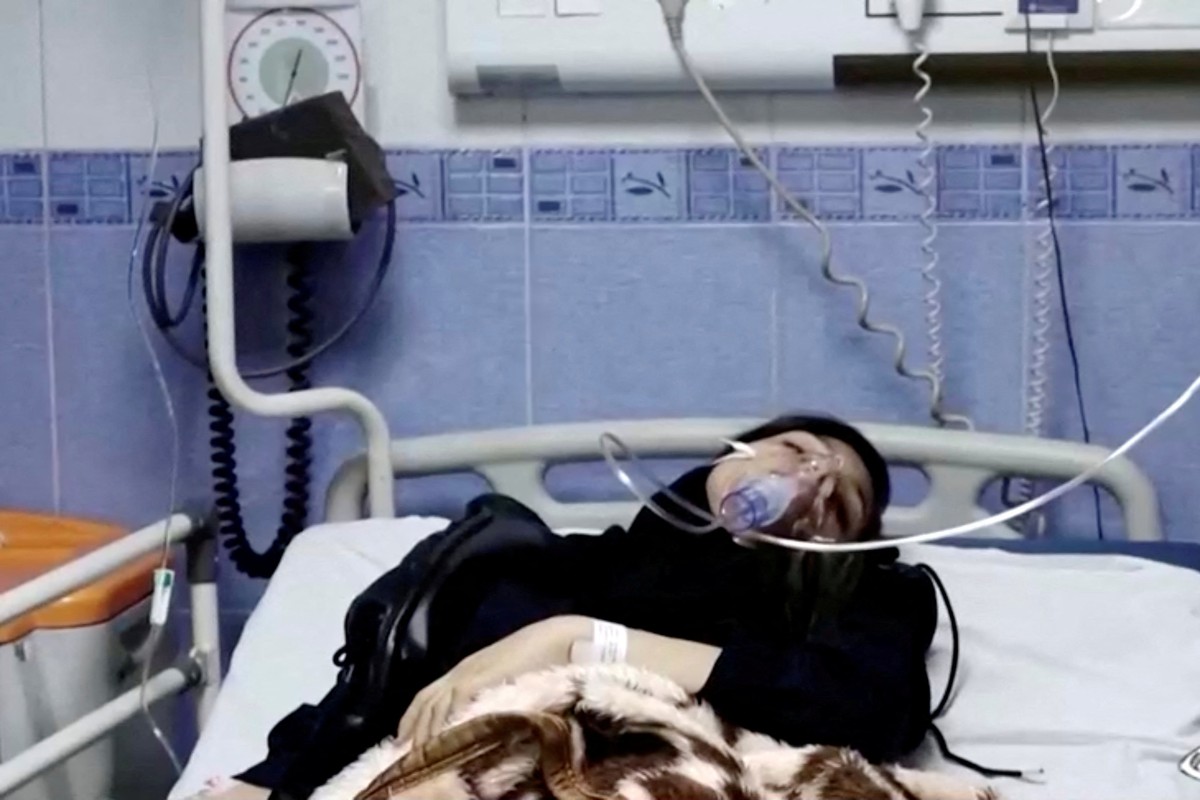
Iran makes first arrests over suspected schoolgirl poisonings
- Iran announced the first arrests connected to a series of suspected poisonings of schoolgirls that has gripped the country
- An Iranian official claimed Tuesday that several individuals were arrested for the gas attacks but details about the suspects were not released
 A young woman lies in hospital after reports of poisoning at an unspecified location in Iran, March 2. Photo: WANA/Reuters TV via Reuters
A young woman lies in hospital after reports of poisoning at an unspecified location in Iran, March 2. Photo: WANA/Reuters TV via ReutersIran announced Tuesday it had made the first arrests in a spate of mystery poisonings of schoolgirls that has affected more than 5,000 pupils since late November.
Supreme leader Ayatollah Ali Khamenei had called Monday for the perpetrators of the “unforgivable crime” to be tracked down “without mercy” as public anger mounts.
“Based on the intelligence and research measures of the intelligence agencies, a number of people have been arrested in five provinces and the relevant agencies are conducting a full investigation,” deputy interior minister Majid Mirahmadi told state television.
He did not identify those detained or elaborate on any possible motive.
From flash mobs to packing spare clothes: The bold tactics that have kept Iran protests going
Scores of Iranian schools have been hit by poisonings since late November, with pupils suffering symptoms ranging from shortness of breath to nausea and vertigo after reporting “unpleasant” odours on school premises. Some have been treated in hospital.
“Twenty-five (out of 31) provinces and about 230 schools have been affected, and more than 5,000 schoolgirls and boys poisoned,” Mohammad-Hassan Asafari, a member of the parliamentary fact-finding committee, told the ISNA news agency on Monday.
“Various tests are being carried out to identify the type and cause of the poisonings. So far, no specific information has been obtained regarding the type of poison used.”
The mystery poisonings have triggered a wave of anger and demands for action from the authorities.
President Ebrahim Raisi tasked the interior and intelligence ministries last week with providing continuous updates on the poisoning cases, dubbing them “the enemy’s conspiracy to create fear and despair” among the people.
“In less than five per cent of the students transferred to hospital, irritant materials were found which led to their ill-health,” the interior ministry said in its latest update Monday.
“Fortunately, so far, no toxic or dangerous substances have been found in any of the students transferred to medical centres.”
Universities in Afghanistan reopen, but women still barred by Taliban
Deputy health minister Saeed Karimi said symptoms included “respiratory irritation, stomach ache, weakness and lethargy”.
“These inhaled irritants may not necessarily be a gas but may be in the form of a powder or paste or even a liquid, which when poured over a heater or vaporised by heat can cause complications,” he added.
The latest case – reported by the ISNA news agency – involved 40 pupils, all of them female, in the restive southeastern city of Zahedan on Tuesday.
The White House called Monday for a “credible independent investigation” into the poisonings.
The first cases were reported in Iran’s Shiite clerical capital of Qom in late November, a month after the Amini protests that later spread to universities and schools.
On Tuesday, Tehran prosecutor Ali Salehi warned “those who spread lies and rumours” about the poisonings that “they will be dealt with decisively and legally,” the judiciary’s Mizan Online website reported.
“In the past week, court cases and charges have been filed against the managers of the Hammihan, Rouydad 24 and Shargh media, as well as several individuals,” Salehi added.